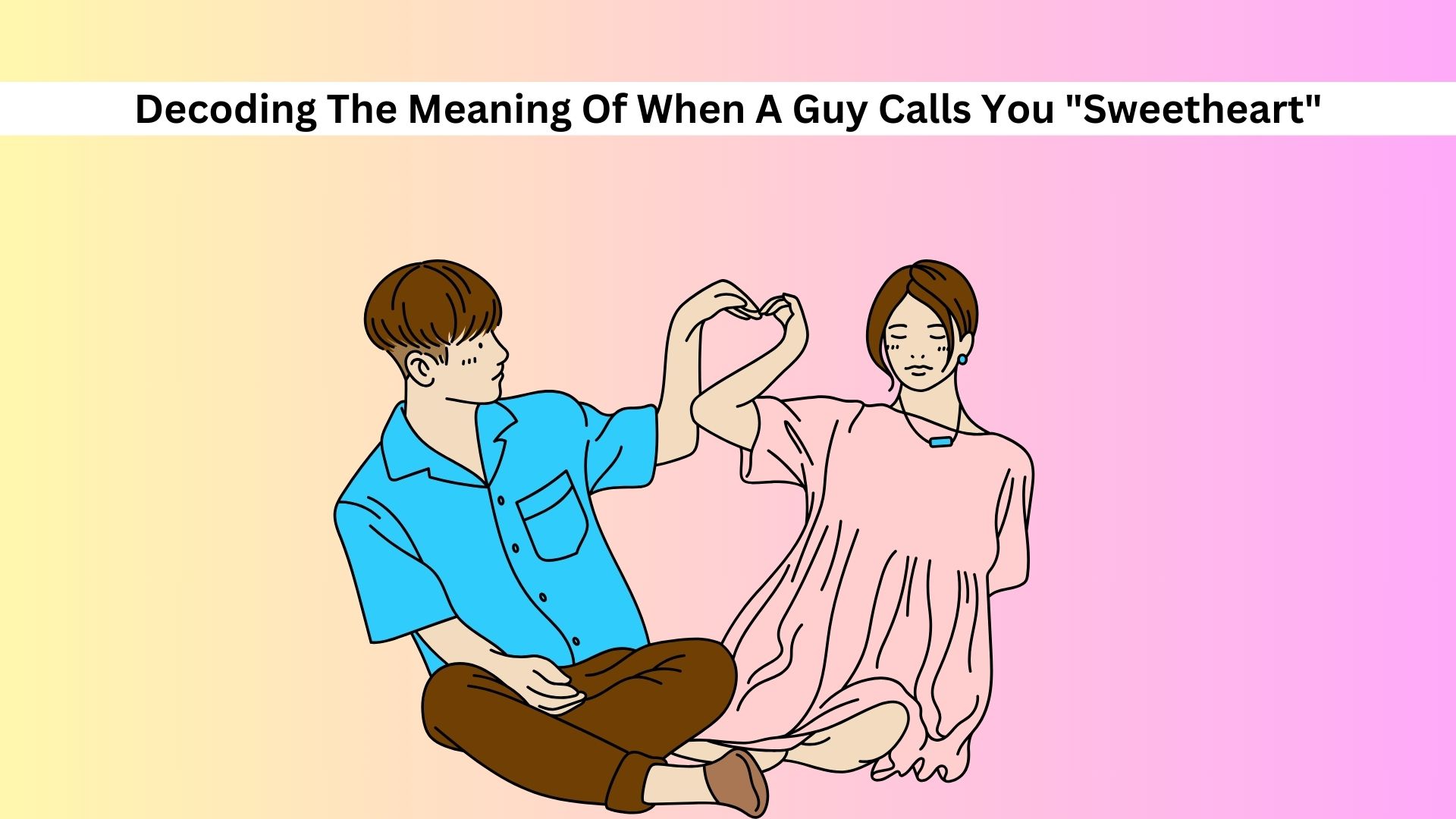When a guy calls you ‘sweetheart,’ it can mean different things based on the situation and relationship. It’s important to consider where and how the term is used. Is it during a casual chat or a more personal moment? While ‘sweetheart’ often shows affection, its real intent can vary. It might be a genuine expression of warmth or, sometimes, it could come off as condescending.
What Does It Mean When A Guy Calls You “Sweetheart”?
Affection and caring
When a man calls you ‘sweetheart,’ it usually means he cares a lot about you. This nickname shows he feels a strong bond or affection for you. It’s a kind, warm way to speak.
Testing your reaction
If a man calls you ‘sweetheart,’ he might test your feelings. This lets him see if you’re okay with him being close or familiar. If you smile or seem happy, he might feel encouraged to show more affection or get closer. But if you don’t react much or seem uncomfortable, that tells him you might not want a closer relationship.
Use of endearments in communication
Analyzing why a man calls someone ‘sweetheart’ can tell us much about his intentions and feelings. The meaning of ‘sweetheart’ and other endearments changes based on culture, personal habits, and the relationship itself. Sometimes, calling someone ‘sweetheart’ is common and doesn’t mean much. In others, it’s a serious term used only in close relationships. Some people just talk that way. They’re warm and naturally use terms like ‘sweetheart’ without implying anything more profound.
Fondness as a friend
When a guy calls you ‘sweetheart,’ it might just mean he feels a friendly affection towards you, not necessarily romantic. Friends often use terms like this when they are close. It can also show that he’s supportive without any romantic feelings attached. Think of it as a cosy nickname that highlights the friendliness between you two.
What Does It Mean In Different Contexts?
Dating scene
In the dating world, the word ‘sweetheart’ can mean different things based on who says it and when.
- Casual Coffee Date: Picture sitting across from someone in a cosy café, surrounded by the smell of coffee and pastries. If they casually call you ‘sweetheart’, it might show they’re getting comfortable with you.
- Romantic Dinner: Imagine a dinner by candlelight with soft music in the background. When he calls you ‘sweetheart’ here, it adds to the romance.
- Playful Banter: Think about joking around at a busy festival. Using ‘sweetheart’ teasingly can be a fun part of flirting.
- Serious Conversation: Now, picture a deep talk about the future. Here, ‘sweetheart’ shows deep affection and a serious commitment.
As a term of endearment in different relationships (friends, family, romantic partner, child)
The term ‘sweetheart’ is a warm way to show affection in different relationships. It means something slightly different depending on who you say it to. Let’s break it down simply:
- Friends: Calling a friend ‘ sweetheart’ is casual and comforting, and it shows you care.
- Family: In the family, ‘sweetheart’ feels protective and loving. It’s a way to show you’re there for each other.
- Romantic Partner: With a romantic partner, ‘sweetheart’ is about deep love. It’s for those close moments.
- Child: Saying ‘sweetheart’ to a child is nurturing and encouraging. It helps them feel safe and loved.
Conclusion
Understanding the term ‘sweetheart’ can mean different things in different relationships. It can be a sign of love, a casual nickname, or sometimes even manipulative. It’s essential to consider the situation, how the person acts when they say it, and how you feel about it. Clear boundaries and open communication help ensure that being called ‘sweetheart’ is a positive experience that brings people closer. Ultimately, what ‘sweetheart’ means can change a lot; everything depends on everyone treating each other with respect and understanding.

